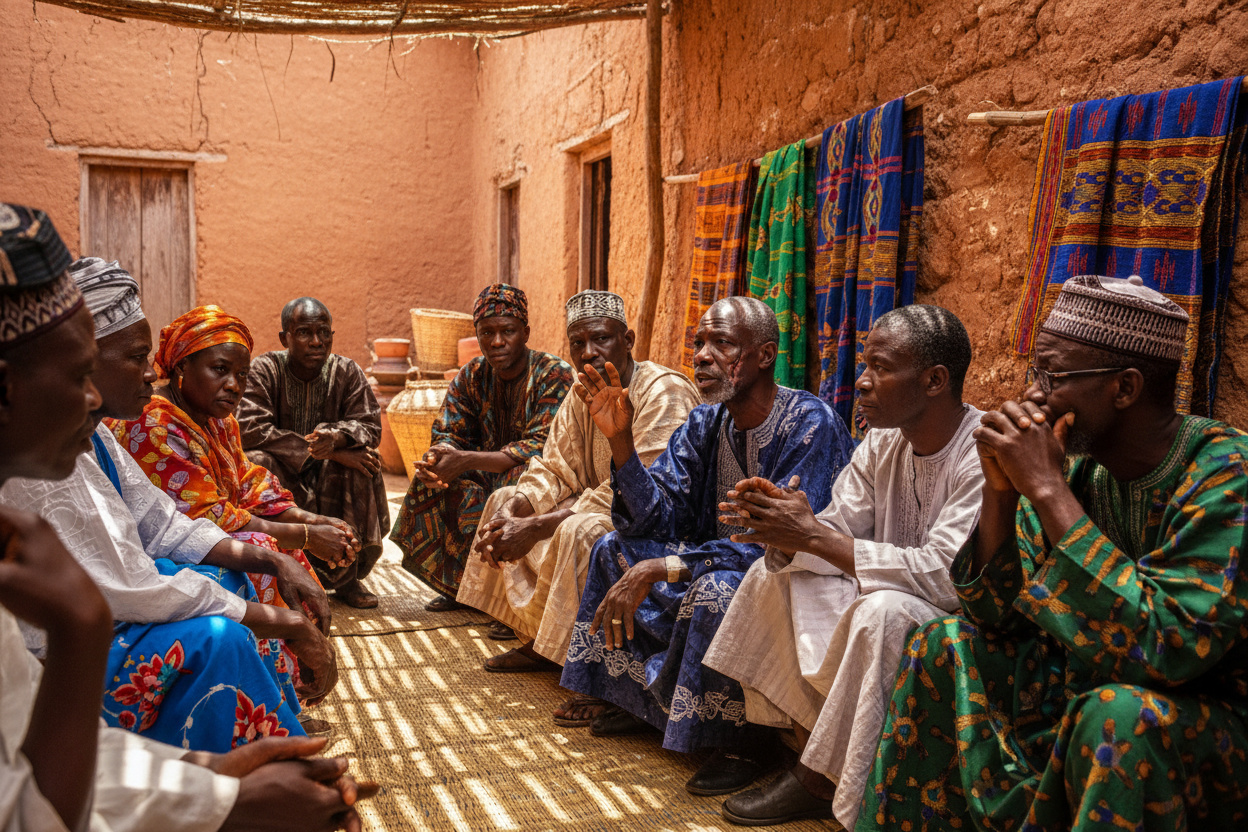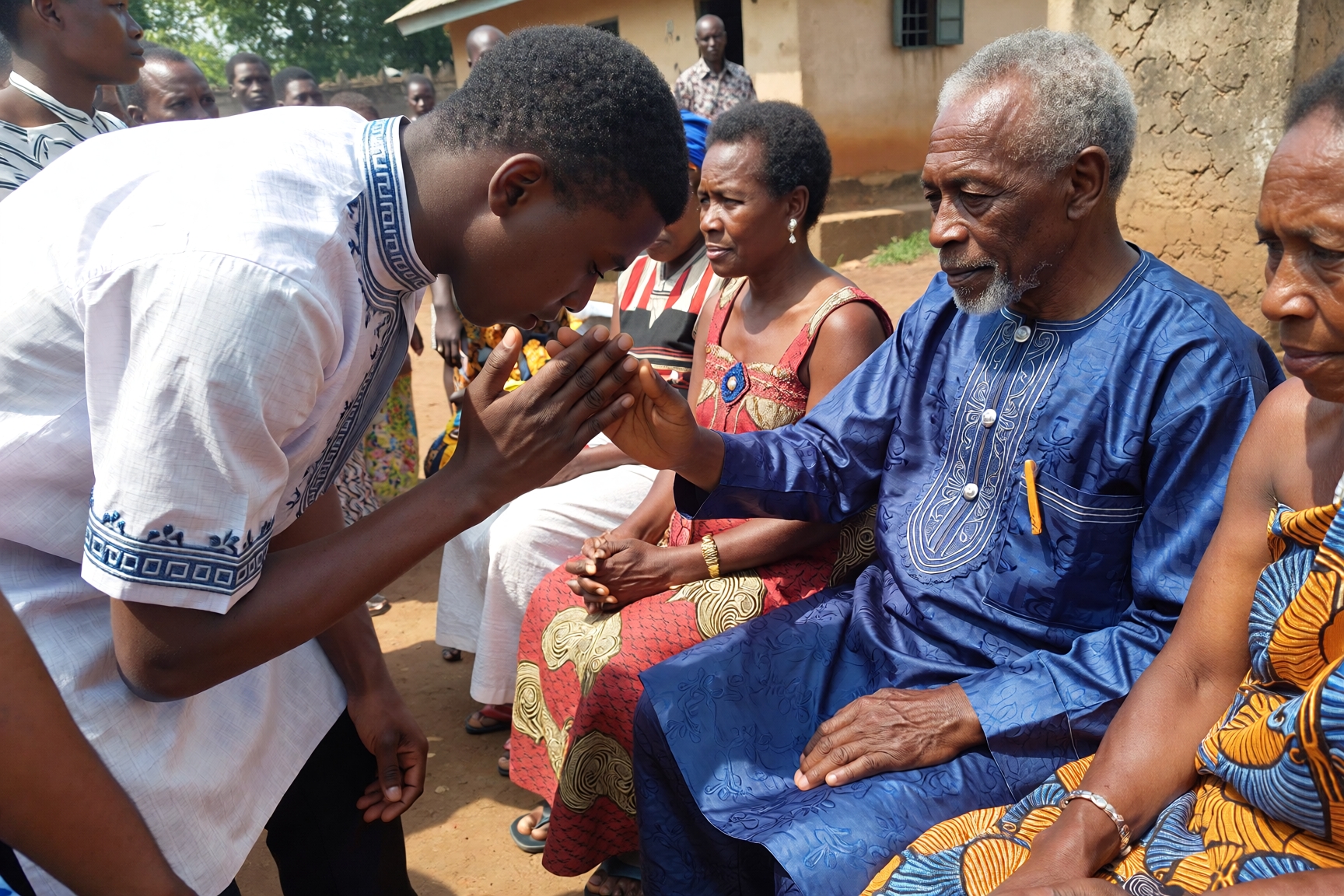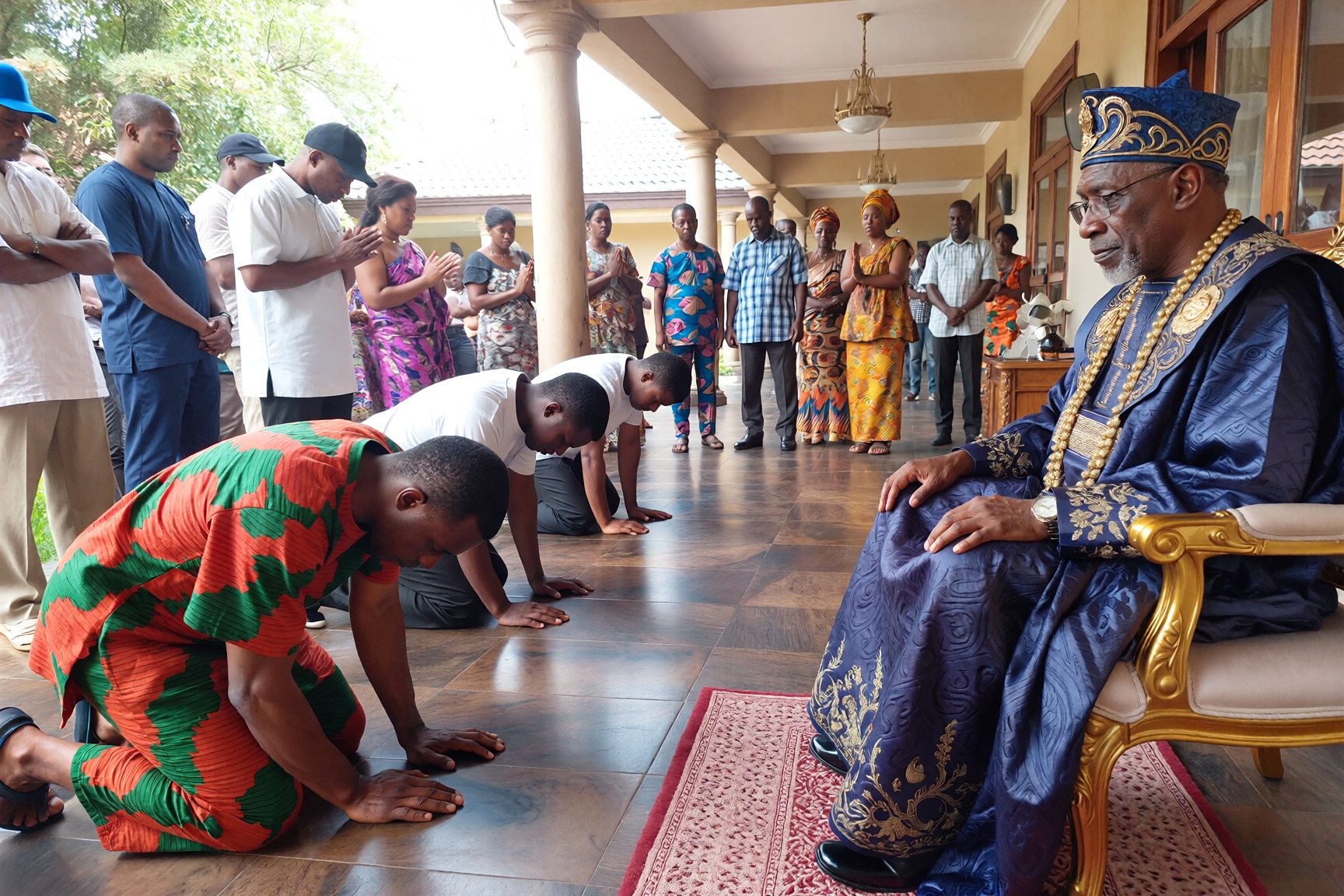I’m absolutely delighted you’ve found your way here, because this question about who named Nigeria is one I’ve been researching for months and pondering for years as a Nigerian writer. It’s rather like discovering the origin of your own surname, isn’t it? There’s something deeply personal about understanding how our nation got its identity.
After extensive research and countless conversations with historians, I can tell you that the story of Nigeria’s name is far more fascinating than most textbooks suggest. Flora Shaw, a British journalist and later the wife of Lord Frederick Lugard, coined the name “Nigeria” in 1897. She derived it from the Niger River, which flows through the country, suggesting it in an article for The Times newspaper as a more dignified alternative to cumbersome phrases like “Royal Niger Company Territories.”
This discovery came after months of digging through colonial archives and historical records, and I must say, it’s transformed how I think about our national identity.
Who Is the Founder of Nigeria?
Now, here’s where things get interesting (and slightly complicated).
Lord Frederick Lugard is widely recognised as the founder of modern Nigeria, though “founder” might be too generous a term for what was essentially colonial amalgamation. In 1914, Lugard merged the Northern and Southern Protectorates to create what we know today as Nigeria. The Nigerian government’s official portal acknowledges this historical moment as the birth of the nation-state.
But let me share something I’ve learned over the years: founding and naming are two different things entirely. Lugard built the house, but his wife-to-be gave it its name nearly two decades earlier.
I remember interviewing an elderly historian in Lagos who put it brilliantly. He said, “Lugard built the house, but Flora Shaw wrote the name on the letterbox.” That’s stuck with me ever since.
The amalgamation wasn’t a simple administrative decision. It was a calculated move to make colonial administration more efficient and cost-effective for the British Empire. The National Archives of Nigeria contains fascinating correspondence showing how British officials debated this merger for years before implementation.
Understanding this colonial history is crucial for our national development. As educators and historians have emphasised, proper historical education shapes our ability to build a unified national identity and avoid repeating past mistakes.
What Is the Full Meaning of Nigerian?
This is where I need to clarify a common misconception that even some of my journalist colleagues get wrong.
“Nigerian” doesn’t have a “full meaning” in the sense of being an acronym. It’s simply the demonym for people from Nigeria, just as “British” describes people from Britain or “American” describes people from America. The suffix “-ian” is a standard English language construction meaning “of or relating to.”
However, I’ve encountered countless creative interpretations over the years. Some people claim it stands for various patriotic phrases, but these are folk etymologies rather than historical fact. The word simply means “a person from Nigeria” or “relating to Nigeria.”
What makes this particularly interesting is how the name has evolved in meaning. When Flora Shaw first suggested it, “Nigerian” would have referred to territories along the Niger River. Today, it encompasses over 200 million people, more than 250 ethnic groups, and a cultural diversity that’s genuinely breathtaking.
The Federal Ministry of Information and Culture works extensively to preserve this cultural heritage whilst promoting the Nigerian identity that transcends our colonial naming. Our diverse ethnic groups have maintained strong identities whilst also embracing what it means to be Nigerian in the modern era. The ways we’ve preserved our cultural heritage through both traditional and modern methods demonstrate how identity evolves whilst maintaining continuity with the past.
Key Historical Timeline of Nigeria’s Naming
| Year | Event | Significance |
|---|---|---|
| 1897 | Flora Shaw coins “Nigeria” | First recorded use of the name in The Times |
| 1900 | Northern and Southern Protectorates established | Separate colonial administrations created |
| 1914 | Amalgamation of protectorates | Modern Nigeria formally created |
| 1960 | Independence achieved | Nigeria becomes a sovereign nation |
| 1963 | Republic status declared | Complete break from British constitutional monarchy |
Looking at this timeline, you can see how our nation’s identity evolved over six decades. The gap between naming (1897) and founding (1914) shows how colonial administration worked in stages, rather than as a single event.

Who Sold Nigeria to the British Name?
I need to address this directly because it’s a question I hear constantly, and it reveals a fundamental misunderstanding of colonial history.
Nobody “sold” Nigeria to the British in the way people imagine. This is one of those persistent myths that oversimplifies a complex and often brutal process of colonisation. Instead, the British gradually took control through a combination of trade agreements, military conquest, and diplomatic manipulation between the 1860s and early 1900s.
Let me share what actually happened.
The Royal Niger Company, under George Taubman Goldie, signed numerous treaties with local rulers and chiefs. These treaties were often signed under duress or misrepresentation. Many local leaders believed they were signing trade agreements, not surrendering sovereignty.
Some treaties involved payments to local rulers, which might be where the “selling” myth originates. But these weren’t sale transactions. They were often protection agreements or trade concessions that the British later reinterpreted as territorial cession.
The Lagos Colony was ceded through the 1861 Treaty of Cession with King Dosunmu of Lagos, who faced British naval bombardment. Was that selling? I’d call it capitulation under threat of violence.
Different regions fell to British control through different means:
- Lagos was annexed in 1861 after military pressure on local rulers
- The Niger Delta fell gradually through Royal Niger Company expansion from the 1880s
- Northern territories were conquered through military campaigns, particularly the 1903 conquest of the Sokoto Caliphate
- Eastern regions were colonised through a mix of treaties and military action throughout the 1900s
The process took decades and involved hundreds of separate agreements, battles, and diplomatic manoeuvres. It wasn’t a single transaction with a single seller.
I’ve spent considerable time researching this, and the reality is far messier than any simple narrative of “selling.” Colonial conquest rarely fits into neat categories. The restoration of history as a compulsory subject in Nigerian schools reflects growing recognition that understanding these colonial processes is essential for preventing the erasure of our true historical narratives.
Who Named the Nigerian Flag?
Here’s another case where the question itself needs refining.
The Nigerian flag wasn’t “named” by anyone because flags aren’t typically named. However, the flag was designed by Michael Taiwo Akinkunmi, a Nigerian student studying in London, who won a competition in 1959, just before independence.
Akinkunmi’s design was beautifully simple: two green vertical bands representing agriculture and the two main rivers (Niger and Benue), with a white band in the middle symbolising peace and unity. When I first learned this story years ago, I was struck by how a 23-year-old student created one of Africa’s most recognisable national symbols.
The flag competition received nearly 3,000 entries. Akinkunmi’s design stood out for its simplicity and meaningful symbolism. Originally, his submission included a red sun in the white band, but this was removed by the judges to create the cleaner design we know today.
I had the privilege of interviewing someone who knew Akinkunmi before his passing in 2023, and they shared how humble he remained about his contribution. He never sought fame or fortune from designing the flag, though the government eventually awarded him monetary recognition decades later.
The official adoption happened on 1st October 1960, independence day. The design captured something essential about Nigeria, a vision of agricultural prosperity and peaceful unity that we still aspire to today.
The Story Behind Nigeria’s Name: A Direct Answer
Let me address the central question clearly and comprehensively.
Flora Shaw, a British journalist working for The Times newspaper, named Nigeria in 1897. She suggested the name in an article as a shortened, more elegant version of “Niger Area” or the territories surrounding the Niger River. Shaw later married Lord Frederick Lugard, the colonial administrator who would amalgamate Nigeria in 1914. The name was officially adopted for the combined territories, replacing awkward designations like “Royal Niger Company Territories” and various protectorate names. Related entities in this story include the Royal Niger Company, the British Colonial Office, the Niger River itself, Lord Frederick Lugard, and the various protectorates that would eventually form Nigeria.
This wasn’t a democratic process or a local decision. It was a colonial naming imposed by British administrators who viewed the territory as their possession.
What strikes me most after years of studying this is the irony. Our nation’s name comes from a British journalist who never lived in Nigeria, named after a river whose own name derives from the Tuareg phrase “egerew n-igerewen” meaning “river of rivers.” We’re named after a name that was itself borrowed from North African languages.
How Nigeria’s Identity Evolved Beyond Its Colonial Origins
The beauty of Nigeria today is how we’ve transformed a colonial label into something entirely our own.
I’ve travelled extensively across Nigeria for my work, and I’ve seen how “Nigerian” has become an identity that transcends its colonial origins. Yes, Flora Shaw named us, and yes, Lugard amalgamated us, but what we’ve become is something neither of them could have predicted or controlled.
Think about it. When Shaw suggested “Nigeria” in 1897, she was thinking of territories to be administered by the British Empire. She couldn’t have imagined Fela Kuti’s revolutionary Afrobeat, or Chinua Achebe’s novels reshaping world literature, or Nollywood becoming the world’s second-largest film industry. She certainly didn’t envision Nigerian tech startups attracting billions in venture capital or our musicians dominating global charts.
The name might be colonial, but the identity we’ve built around it is undeniably, authentically Nigerian.
Our rich cultural diversity, with over 371 distinct ethnic groups, has created a unique national character that defies simple categorisation. Each group brought its own traditions, languages, and customs to the Nigerian table, creating something far greater than the sum of its parts.
I think often about what it means to reclaim colonial impositions. We didn’t choose our name, true. But we’ve chosen what it means to be Nigerian. And that’s where our power lies.
Conclusion: Understanding Who Named Nigeria and What It Means Today
So, who named Nigeria? Flora Shaw, a British journalist, coined the name in 1897, drawing from the Niger River that flows through our land. But knowing who named us is only the beginning of understanding our national story.
The real power of this knowledge isn’t in the historical trivia (though I do love a good historical detail!). It’s in recognising that whilst we didn’t choose our name, we absolutely choose what it means to be Nigerian in the 21st century.
Every day, 200 million people wake up and add their own meaning to what “Nigerian” represents. From the Hausa traders in Kano to the tech entrepreneurs in Lagos, from the Igbo artisans in Aba to the Yoruba artists in Ibadan, from the Ijaw fishermen in the Niger Delta to students in universities across all 36 states, we’re all writing the definition of “Nigerian” through our lives and choices.
That’s the beautiful irony. Flora Shaw might have named us, but we’ve spent over a century making that name mean something she never imagined.
Three Key Takeaways:
- Flora Shaw coined “Nigeria” in 1897 as a simplified name for the Niger River territories, which Lord Frederick Lugard would amalgamate into a single nation in 1914.
- “Nigerian” isn’t an acronym but simply means “of or relating to Nigeria,” and colonial conquest involved complex treaties and military action over decades rather than a simple transaction.
- We’ve reclaimed our colonial name by building a unique national identity through our diverse cultures, artistic contributions, and shared experiences that transcend the name’s imperial origins.
Exploring More of Nigeria’s Rich Heritage
As we’ve journeyed through the story of Nigeria’s naming, I’m reminded of how deeply interconnected our history and identity truly are. The way our nation was named reflects broader patterns of how our diverse cultures came together under one flag.
If you’re curious about the incredible variety of people who make up Nigeria today, understanding our ethnic composition adds crucial context to how colonial naming affected different communities differently. The 371 distinct groups that call themselves Nigerian each experienced this imposed identity in their own way.
Similarly, how we communicate across ethnic boundaries shapes what it means to be Nigerian just as much as the name itself. The linguistic bridges we’ve built since independence tell another compelling story about post-colonial identity formation and how English became the common thread binding our diverse nation together.
Frequently Asked Questions About Who Named Nigeria
Who Named Nigeria and When?
Flora Shaw, a British journalist working for The Times of London, named Nigeria in 1897. She suggested the name as a more convenient alternative to lengthy colonial designations like “Royal Niger Company Territories.”
What Does the Name Nigeria Mean?
Nigeria derives from the Niger River, which flows through the country. Shaw combined “Niger” with the Latin-derived suffix “-ia” (meaning “land of”) to create “Nigeria,” essentially meaning “land of the Niger.”
Who Founded Nigeria as a Country?
Lord Frederick Lugard founded modern Nigeria by amalgamating the Northern and Southern Protectorates on 1 January 1914. This administrative merger created the single colonial territory that would eventually become independent Nigeria in 1960.
Why Did Flora Shaw Name Nigeria?
Flora Shaw suggested “Nigeria” because she found existing designations for the territory cumbersome and unsuitable for regular use in journalism. She wanted a shorter, more dignified name that referenced the region’s most prominent geographical feature, the Niger River.
Who Was Flora Shaw to Nigeria?
Flora Shaw was a British journalist and colonial correspondent who had never lived in Nigeria when she suggested its name. She later married Lord Frederick Lugard, the colonial administrator who amalgamated Nigeria, becoming Lady Lugard.
Did Anyone Sell Nigeria to the British?
No individual or group sold Nigeria to the British in a commercial transaction. British control came through decades of military conquest, coerced treaties with local rulers, and gradual colonial expansion from the 1860s through the early 1900s.
What Was Nigeria Called Before 1914?
Before 1914, the territory that became Nigeria consisted of separate entities: the Lagos Colony, the Southern Nigeria Protectorate, and the Northern Nigeria Protectorate. Various local kingdoms and empires (like the Sokoto Caliphate, Benin Kingdom, and Oyo Empire) governed different regions before British conquest.
When Did Nigeria Gain Independence?
Nigeria gained independence from British colonial rule on 1 October 1960. The country became a republic in 1963, fully severing constitutional ties with the British monarchy.
How Did the Niger River Get Its Name?
The Niger River’s name likely derives from the Tuareg phrase “egerew n-igerewen,” meaning “river of rivers.” European explorers adapted this to “Niger,” which Flora Shaw then used as the basis for “Nigeria.”
Who Designed the Nigerian Flag?
Michael Taiwo Akinkunmi, a Nigerian student studying in London, designed the Nigerian flag in 1959. He won a competition organised ahead of independence, with his simple green-white-green design symbolising agriculture, peace, and unity.
What Is the Full Meaning of Nigerian?
“Nigerian” has no full meaning because it’s not an acronym. It’s simply the demonym (like “British” or “American”) meaning “a person from Nigeria” or “relating to Nigeria,” formed by adding the suffix “-ian” to “Nigeria.”
How Many Ethnic Groups Were United Under the Name Nigeria?
Nigeria comprises over 371 distinct ethnic groups, each with unique languages, customs, and traditions. The colonial amalgamation brought together the three major groups (Hausa-Fulani, Yoruba, and Igbo) plus hundreds of minority ethnic communities under one national identity.






